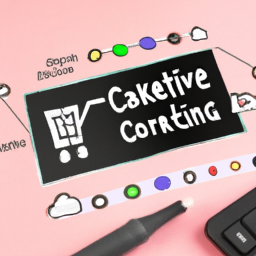Step-by-Step Guide to Building a Thriving Online Marketplace Website
Table of Contents []
Creating A Marketplace Website
Introduction
Creating a marketplace website can seem like a daunting task, given the wide range of topics, subtopics, and complexities involved. With a little bit of preparation and planning, however, it can be done relatively easily. In this article, we'll look at 8 to 12 topics and sub-topics which should be covered when creating a marketplace website, as well as suggestions for how to incorporate them into the page.
User Accounts
User accounts are essential to any marketplace website, as they are what link buyers and sellers and enable transactions. Account setup should include the ability to create a profile, login, logout, and reset passwords. There should also be options for two-factor authentication and other security measures, such as captcha or reCaptcha.
Payments & Transactions
Payments and transactions need to be secure and reliable, which is why choosing the right payment gateway is key to creating a successful marketplace website. Payment gateways should support a variety of payment methods, such as credit cards and e-wallets. They should also be easy to integrate into the website, so that transactions can be processed quickly and easily.
Product Reviews
Product reviews are essential to any marketplace website, as they help buyers make informed decisions and provide credibility to the seller. Reviews can be collected using forms, or customers can be given the option to review products on the website itself. Reviews should also include an overall rating system, so buyers can easily review the quality of products.
Search Functionality
Search functionality is crucial for any marketplace website, as it allows buyers to quickly find what they are looking for. Good search functionality should be able to quickly filter and sort products based on a variety of criteria, such as price, category, etc., as well as display relevant results to the user.
Inventory & Listings
Inventory and listings are an essential part of any marketplace website, as they allow buyers to browse products and add them to their cart. Listings should include detailed descriptions of the product, pricing information, images, and reviews. They should also have features such as Add to Cart and Compare so buyers can quickly and easily make comparisons.
Shipping & Delivery
Shipping and delivery are an important part of any marketplace website, as they allow buyers to get their products quickly and safely. Shipping options should include standard (transit) timeframes, as well as express (overnight) delivery. There should also be options for tracking orders and providing necessary delivery information to the buyer.
Customer Service
Customer service is an integral part of any marketplace website, as it helps to provide buyers with a good experience. Customer service should include options for email, telephone, chat, and online help. It should also provide users with a way to contact customer service representatives if they have questions or issues.
Coupons & Discounts
Coupons and discounts can be a great way to incentivize buyers to make purchases on the website. Coupons should be easy to apply and redeem, as well as be clearly displayed on the website. Discounts should also be available for bulk purchases, as well as for returning customers.
Digital Goods
Digital goods, such as music, videos, and e-books, are becoming increasingly popular on marketplace websites. These digital goods should be easy to purchase and download, as well as be stored securely on the website.
Security
Security is of the utmost importance when creating a marketplace website, as buyers trust their personal data with the website. It is essential to provide a secure connection with encryption and secure payments, as well as secure storage of buyer information.
Summary
Creating a marketplace website can be a daunting task, but with a bit of preparation and planning, it can be done relatively easily. The 8 to 12 topics covered in this article should provide a good starting point for creating a successful marketplace website. These topics include user accounts, payments and transactions, product reviews, search functionality, inventory and listings, shipping and delivery, customer service, coupons and discounts, digital goods, and security. Once these topics are in place, the website should be ready to launch.

